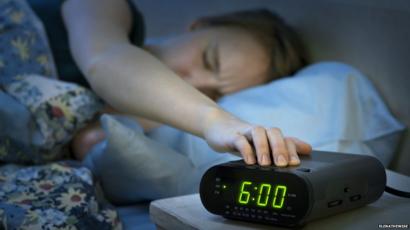Everyone knows the feeling of a good night’s sleep. A spark of natural, healthy energy kick starts the day in a way no coffee binge ever can, and your body and mind are prepared to tackle any challenge the world can throw at you. Everything just seems to work out, and the bad things don’t bother you as much.
Conversely, not getting enough rest puts you in a state of unease and exhaustion that envelops your entire day and makes you more irritable. I can speak for myself when I say that a bad night of sleep makes me forgetful and cranky during the day, to the point where my coworkers can accurately determine how much sleep I’ve been having recently by my behavior and level of alertness. You don’t want to doze off in the office!
Most of us dismiss this irritability as a harmless (although unpleasant) byproduct of a busy working schedule, a bad mood that comes and goes as we deal with the stresses of modern life, but the truth could be much more serious than that. To put it bluntly, a lack of sleep and bad sleeping habits are some of the most surefire ways to damage your overall mental health and wellbeing. Let’s examine the connection between short sleep and mental health together so that you can set yourself on the road to personal improvement, and enjoy the many joys of life that much more. First things first, however:
The Role of REM Sleep
Have you ever wondered why waking up in the middle of the night can leave you tired even after 10+ hours of combined sleep? Those groggy and unpleasant mornings where you remember getting what seems like enough rest, but you’re as tired as you would be with only 4-6 hours. The answer lies in the “job” that REM sleep performs over the course of a night.
When you look at the architecture of sleep, the natural progression we go through between sleep stages, every stage has its role. Light sleep is where learning and memorization occur, and this is why students are sometimes advised to take a quick 10-20 minute nap in the early afternoon in order to retain information more efficiently. Deep sleep is “responsible” for our bodily repairs – it’s where our immune system is strengthened, our bones and tissues are repaired, and similar processes occur.
REM sleep, however, is in charge of “repairing” our mind. When we get enough REM sleep, our ability to concentrate, tolerate stress, make calculated decisions, etc. is sharpened. Think of it as a mental shield that protects you from the nastier side of modern life, and helps you stay positive and function properly. In order to spend time in REM sleep, we have to sleep without interruptions for at least several hours, which explains why people who keep waking up during the night have problems concentrating or keeping a positive mindset. Without this important sleep stage, we run a serious risk of developing mental health issues that persist for a while.
Poor Sleep and Mental Health
It’s easy to connect a lack of proper rest to the development and amplification of mental health issues. For example, while around 18% of US adults experience insomnia, that percentage skyrockets to a scary 50-80% when the sample size is reduced to psychiatric patients. This is far from a coincidence, and we will show you why this is the case through a brief list of examples.
Depression is one of the most commonly talked about mental illnesses, and not without good reason. Around 90% of people with this condition unfortunately also have to deal with sleep problems. This mental illness can keep you down in a variety of ways, and one of the main ones is an inability to quickly fall asleep, as it amplifies any feelings of stress you’ve built up over the course of your day (or week).


